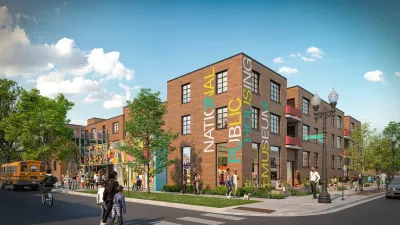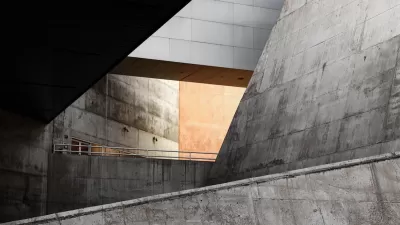Like so many drug and crime infested neighborhoods in cities everywhere, ideas abound for fixing the Jane and Fitch neighborhood in Toronto. But will any of them work?
"Over the past three decades, Jane and Finch has remained a crack in Toronto's wall that has, again and again, been covered up with wallpaper.
It has been decorated with grants, surveillance cameras, task forces and studies. But as politicians furrowed their brows at the somehow-surprising findings of each commissioned report, all along, residents have been calling for a new foundation.
Jim Watson politely disagrees with critics who say the provincial government hasn't committed itself financially to fixing Jane and Finch."
"But the decades-old problems persist. Unemployment. Low income. Under-education. Health problems. Poor housing. Isolation."
"Watson pins the blame, like so many others before him, on the 1970s urban planning fiasco that is Jane and Finch.
Dozens of low-income high rises erected around the intersection would preface overcrowding in schools and increasing juvenile delinquency in the 1970s, the presence of handguns in the 1980s and increasing poverty through the 1990s.
Kids would fall through the cracks that critics charge have never been cracks at all, but huge gaps left by negligent politicians. Some would fall behind in school; others would drop out, deal drugs, rob stores, carry guns. Childhood friends would end up behind bars, in front of bullets and in burial plots.
"We're very much of the opinion that you have to have a mixed development in neighbourhoods so that you know individuals are interacting with people from all economic strata," Watson says. "To simply have all of the low-income people put into an affordable housing complex is not good planning."
But being of an opinion and fixing problems erected by long-gone policy makers are entirely different things."
FULL STORY: Lots of fixes, no solutions

Alabama: Trump Terminates Settlements for Black Communities Harmed By Raw Sewage
Trump deemed the landmark civil rights agreement “illegal DEI and environmental justice policy.”

Planetizen Federal Action Tracker
A weekly monitor of how Trump’s orders and actions are impacting planners and planning in America.

The 120 Year Old Tiny Home Villages That Sheltered San Francisco’s Earthquake Refugees
More than a century ago, San Francisco mobilized to house thousands of residents displaced by the 1906 earthquake. Could their strategy offer a model for the present?

LA’s Tree Emergency Goes Beyond Vandalism
After a vandal destroyed dozens of downtown LA trees, Mayor Karen Bass vowed to replace them. Days later, she slashed the city’s tree budget.

Sacramento Leads Nation With Bus-Mounted Bike Lane Enforcement Cameras
The city is the first to use its bus-mounted traffic enforcement system to cite drivers who park or drive in bike lanes.

Seattle Voters Approve Social Housing Referendum
Voters approved a corporate tax to fund the city’s housing authority despite an opposition campaign funded by Amazon and Microsoft.
Urban Design for Planners 1: Software Tools
This six-course series explores essential urban design concepts using open source software and equips planners with the tools they need to participate fully in the urban design process.
Planning for Universal Design
Learn the tools for implementing Universal Design in planning regulations.
Ada County Highway District
Clanton & Associates, Inc.
Jessamine County Fiscal Court
Institute for Housing and Urban Development Studies (IHS)
City of Grandview
Harvard GSD Executive Education
Toledo-Lucas County Plan Commissions
Salt Lake City
NYU Wagner Graduate School of Public Service





























